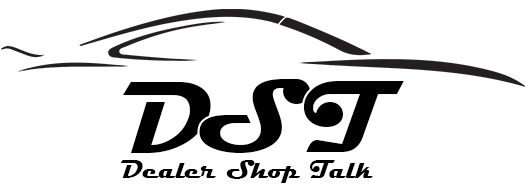In today’s fast-paced and digitally-driven world, staying ahead in the automotive industry requires more than just selling cars. Dealerships that embrace modernization and integrate cutting-edge technology into their business operations are gaining a significant competitive advantage. From streamlining processes to enhancing customer experiences, the importance of keeping up to date with technology cannot be overstated. In this article, we delve into the reasons why modernizing your dealership and adopting the latest technologies is crucial for sustainable growth and success.
1. Enhancing Efficiency and Productivity:
One of the key benefits of technology integration is the optimization of various dealership processes. From inventory management to sales and service, digital tools can significantly enhance efficiency and productivity. Advanced Customer Relationship Management (CRM) systems, for instance, allow sales teams to track leads, monitor customer interactions, and follow up with potential buyers promptly. With automated workflows and streamlined communication, staff can focus on building relationships and closing deals, leading to increased sales and customer satisfaction.
2. Seamless Inventory Management:
Keeping track of hundreds of vehicles can be a daunting task, but modern technology makes it easier than ever. Inventory management systems can help dealerships track vehicle details, pricing, and availability in real-time. This empowers sales teams to offer accurate information to customers, minimizing the risk of miscommunication and enhancing the overall buying experience. Additionally, integrated software can facilitate easy ordering and restocking, ensuring that popular models are always available on the lot.
3. Personalized Customer Experiences:
Customers today expect personalized experiences from businesses they interact with, and dealerships are no exception. By leveraging customer data through analytics tools, dealers can gain insights into customer preferences, past purchases, and service history. Armed with this knowledge, dealerships can tailor marketing efforts, offer personalized promotions, and recommend vehicles based on individual needs, fostering strong customer loyalty and repeat business.
4. Empowering Online Presence:
A dealership’s online presence has become paramount in today’s digital landscape. A modernized dealership invests in a user-friendly website and leverages social media platforms to engage with potential customers. Digital advertising and online campaigns can target specific demographics, driving relevant traffic to the dealership’s website and generating qualified leads. Additionally, online service scheduling and interactive virtual showrooms contribute to an enhanced online customer experience.
5. Embracing Emerging Trends:
The automotive industry is continuously evolving, with new trends and technologies emerging regularly. Modern dealerships stay ahead of the curve by adopting these advancements early on. Embracing electric and hybrid vehicles, investing in autonomous driving technology, and offering innovative mobility solutions are some ways dealerships can remain relevant in the face of changing consumer demands.
6. Building Trust and Credibility:
Investing in modern technology demonstrates a commitment to providing top-notch service to customers. This commitment fosters trust and credibility among potential buyers, as they perceive the dealership as reliable and up-to-date. Moreover, leveraging technology in service departments enhances transparency and accountability, further strengthening customer trust.
In conclusion, modernizing your dealership through technology integration is no longer a luxury; it is a necessity for sustainable growth and success. Embracing the latest digital tools and trends enables dealerships to optimize processes, personalize customer experiences, and build strong online presence. As the automotive industry continues to evolve, staying ahead of the curve and adopting emerging technologies will undoubtedly keep your dealership thriving in a highly competitive market.

